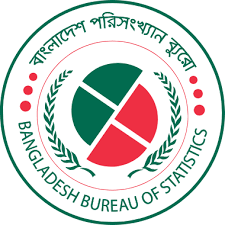An independent taskforce has called for sweeping reforms to transform the Bangladesh Bureau of Statistics (BBS) into a modern, autonomous, and trusted national statistical agency—proposing a new name, and major structural changes to enhance credibility, professionalism, and public trust.
Chaired by Dr. Hossain Zillur Rahman, Executive Chairman of the Power and Participation Research Centre (PPRC), the Taskforce submitted its report to the Planning Advisor on Monday, laying out an ambitious roadmap to elevate BBS into a 21st-century institution.
The panel included leading academics and former officials, such as Mr. Mohammad Abdul Wazed, former Director General of BBS; Dr. Fahmida Khatun, Executive Director of CPD; and Dr. Mohammad Abdur Razzaque, Chairman of RAPID, among others.
A New Identity and Professional Structure
The proposal to rename BBS as “Statistics Bangladesh” or StatBD is aimed at repositioning the institution as a credible and professional National Statistical Organization. The new title of Chief Statistician, a Special Scale post, is designed to reinforce the agency’s autonomy and professional standing.
The Taskforce believes that these symbolic and structural changes are critical to restoring public trust in official statistics and signaling a clear break from past practices.
To ensure accountability and protect the agency from external interference, the Taskforce recommends creating a Trust and Transparency Council of Statistics (TTCS). This high-level, seven-member body would oversee institutional performance, audit spending, and supervise the selection process of the Chief Statistician.
The TTCS would be chaired by the Planning Advisor, adding a layer of credibility and oversight while maintaining a degree of operational independence.
Legislative and Structural Reforms
A key recommendation is to amend the Statistics Act of 2013 to legally guarantee the agency’s autonomy in technical decisions, such as data validation and release schedules. The goal is to prevent administrative or political influence over official statistics.
To address long-standing capacity gaps, the Taskforce suggests expanding BBS’s organizational structure from eight to sixteen wings, and creating 437 new Upazila-level positions. These changes aim to strengthen data collection at the grassroots level.
The report also calls for unifying cadre and non-cadre services under a single professional track to build a coherent and competent statistical workforce.
Recognizing chronic underfunding, the report proposes dedicated revenue funding for core statistical surveys, and an immediate allocation of Tk. 50 crore to stabilize annual survey operations.
Such financial reforms are seen as essential for reducing dependence on donor-funded projects and ensuring the continuity and quality of data collection.
To promote transparency, the Taskforce urges the adoption of an Open Data and Release Policy. This would include pre-announced release calendars, simultaneous access to data for all users, and full publication of metadata and methodology.
These steps are aimed at making official data more accessible, understandable, and credible to policymakers, researchers, and the public.
The report emphasizes broad-based stakeholder engagement as a core reform pillar. It proposes an Annual Stakeholder Conference to foster dialogue among statisticians, policymakers, civil society, and the private sector.
It also recommends advisory committees for major surveys, as well as internship opportunities for young professionals, to ensure data outputs remain relevant, inclusive, and responsive to user needs.
Investing in Capacity and Consistency
To support long-term professional development, the Taskforce recommends upgrading the current training center into a StatBD Training Academy. The Academy would offer structured programs for new recruits, mid-career professionals, and senior managers.
Additionally, a Methodological Advisory Council is proposed to standardize data collection methods and ensure consistency across different government agencies.
To kickstart the reform process, the Taskforce calls for the immediate formation of a Recommendation Implementation Task Team, chaired by the Planning Advisor. This team would oversee the phased rollout of reforms over the short and medium term.
“This is a rare opportunity to future-proof our national statistics system,” said Dr. Zillur Rahman. “These reforms can make Bangladesh’s statistical infrastructure more credible, independent, and aligned with global best practices.”

